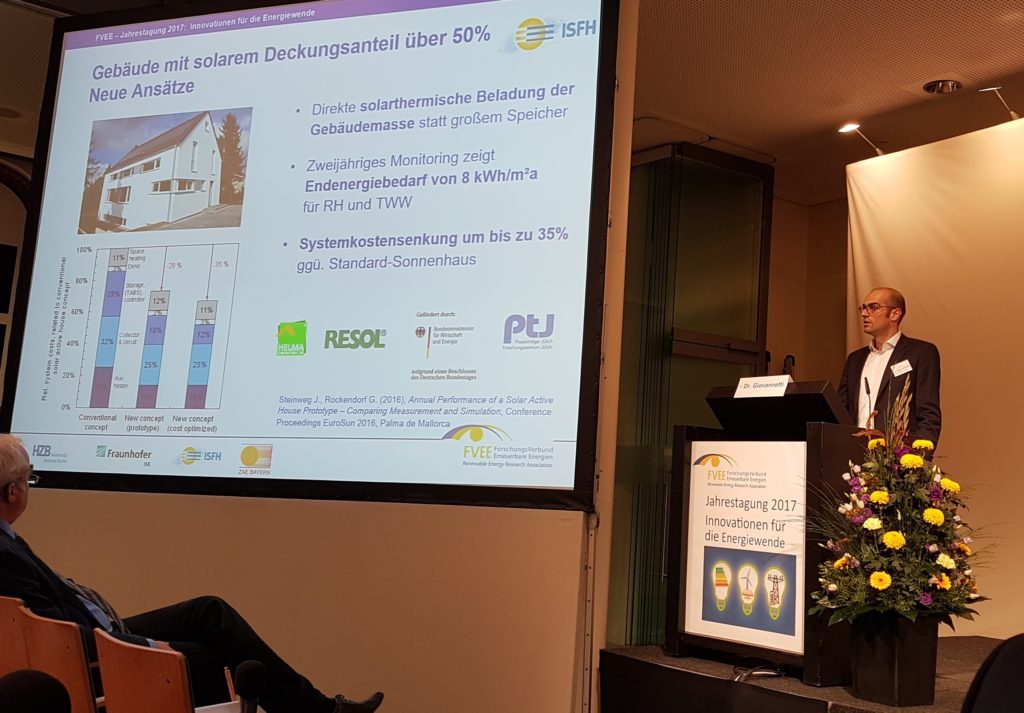From left to right: The scientific conference leaders Prof. Dr. Manfred Fischedick (Wuppertal Institute) and Prof. Frank Baur (IZES), together with Prof. Dr. Rolf Brendel (ISFH), present the highlights of the FVEE annual meeting in advance.
Dr. Federico Giovannetti presents the current state of development and the perspectives on the topic “Solar heating and cooling”.
At this year’s annual meeting, the Research Association for Renewable Energies (FVEE) gave an overview of the current state of development and prospects in the technology areas relevant to the transformation of energy systems.
At the beginning, the scientific conference leaders Prof. Dr. Manfred Fischedick (Wuppertal Institute) and Prof. Frank Baur (IZES), together with Prof. Dr. Rolf Brendel (ISFH), presented the highlights of the annual conference and recommendations for research funding in the field of photovoltaics at a press conference.
In a broad consultation process, the Federal Government is currently preparing the 7th Energy Research Programme, which is to be in line with the overarching political objectives. This requires a systematic reassessment of the various technologies and their potential contribution to the energy transformation: in a bottom-up approach, FVEE experts identify the technologies and development trends available today and identify necessary technical or economic improvements. The analysis framework comprises more than 30 fields of technology in the fields of renewable energy, networks, storage, power to X sector coupling and energy and resource efficiency. The researchers evaluate all fields of technology along twelve evaluation criteria and ask, among other things, about the contribution of the respective technology to climate policy and the energy industry, the positioning of German companies in the international arena and central aspects of system compatibility.
In the field of “Solar heating and cooling”, Dr. Federico Giovannetti from ISFH presented the results of this multi-criteria assessment and the latest research results. In addition, ISFH employees were also involved in the presentations “Spatial effects of innovative concepts and technologies”, “Innovative materials research for the energy technologies of the future”, “Energy and resource-efficient buildings”, “Thermal energy storage systems for demand-oriented heat supply in industry”, “Electricity storage in the energy system of the future”, “Research and development in silicon photovoltaics”, and “Geothermal energy and environmental heat”.


